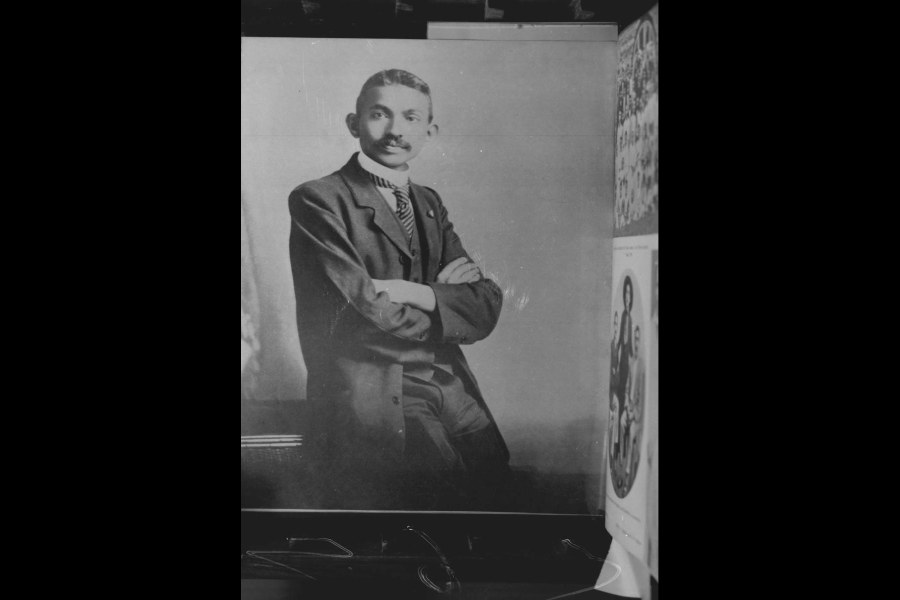In the latter part of 1919, i.e. more than a hundred years ago, Sarala Devi joined, in Punjab, the multi- pronged struggle that Gandhi had launched earlier that year. He saw her entry as an unexpected gift of immense value.
Sarala Devi seemed to grasp instinctively the logic of Satyagraha. She donned thick khadi saris even before these were worn by women in the Sabarmati ashram or by Gandhi’s wife Kasturba.
She wrote inspiring poetry, sang stirringly and brought the Tagore aura with her. Having previously trained young Bengalis in anti-British militancy, she also seemed to bring to Gandhi’s non-violent platform the fame that revolutionaries enjoyed.
Mutual personal warmth quickly grew. Swiftly and subtly, Gandhi’s admiration and gratefulness turned into a delusion. He imagined a non-physical partnership with her (he used the phrase “spiritual marriage”) that would enable an early fulfilment of his dreams for India.
Loyal young associates like Gandhi’s 19-year-old son Devadas (who would become my father), Mathuradas Trikamji (older than Devadas and grandson of Gandhi’s half-sister Muliben) and 28-year-old Mahadev Desai (Gandhi’s brilliant secretary) were troubled. In their concern they were joined by 42-year-old Chakravarti Rajagopalachari, the Tamil lawyer who by this time had suspended his law practice to join Gandhi in his agenda of sacrificial but nonviolent patriotism.
Twenty-eight years later, C.R., as he was known, would become India’s first, and last, Indian governor-general.
Their frankness with Gandhi convinced him, in the middle of 1920, to end the relationship with Sarala Devi. In 1933, Gandhi would say, in a letter to a friend, that he had been prevented from “rushing into hellfire” by the thought of Kasturba, and because of interventions by Devadas, Mathuradas and Mahadev. He said similar things in other conversations or letters without ever naming Sarala Devi.
That Gandhi-Sarala relationship is a piece of history from before I was born. Now I am 88 and a grandfather myself. I find the story human and brave but sad too, for I can easily imagine the rejection that must have been felt by Kasturba and by Sarala Devi’s husband, Pandit Rambhuj Dutt Chaudhuri, who was an eminent Punjab leader. I also realise that ending that brief, gratifying and yet hazardous relationship could not have been easy for Gandhi. It was surely very painful for Sarala Devi. I am impressed that (despite that pain) her communication and friendship with Gandhi continued until her death in 1945.
It is also impressive that neither made any public reference to the intense but brief relationship or to its termination. Sarala Devi seems to have firmly rejected any urge to hurt Gandhi in retaliation or to gain attention by publicly recalling the special friendship.
On his part, Gandhi, speaking to a prayer meeting in Calcutta, six days after the
arrival of Independence, recalled that “the late Sarala Devi Chaudhurani” used to “sing Saare Jahaan Se Achchha sweetly”. I should add that I am glad that our relative Radha Gandhi (daughter of Maganlal Gandhi, who was the rock of the Sabarmati Ashram, and many years older than me) married Sarala Devi’s only son Dipak Chaudhuri (who would become a noted Supreme Court advocate). This happened after Gandhi and Sarala Devi had both gone, but in their final years the two had known of the Radha-
Dipak romance.
Gandhi is a historian-writer and grandson of Mahatma Gandhi










